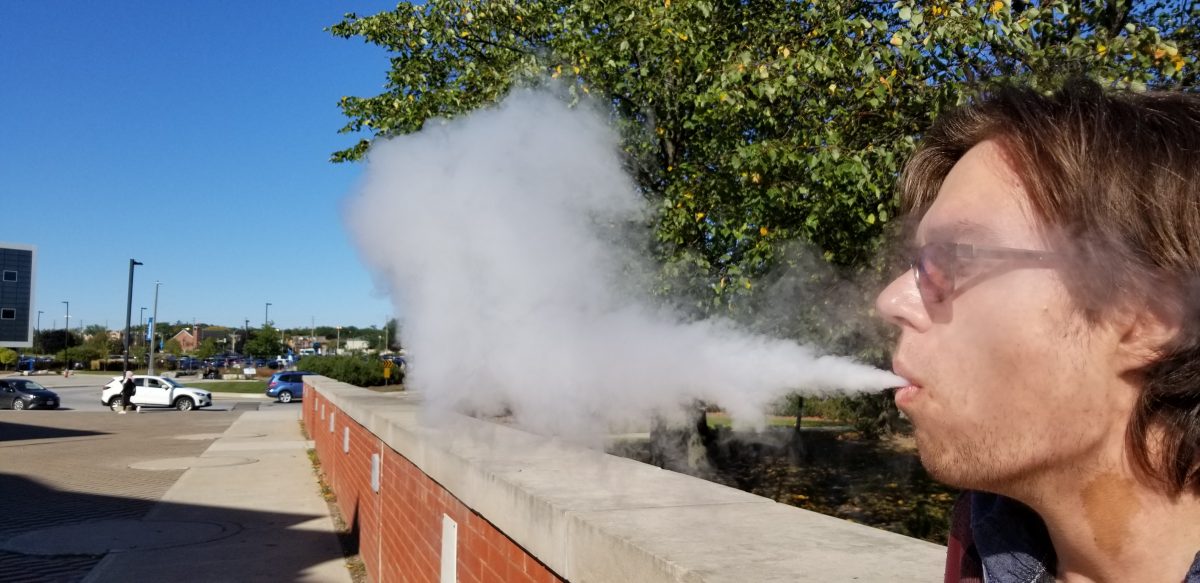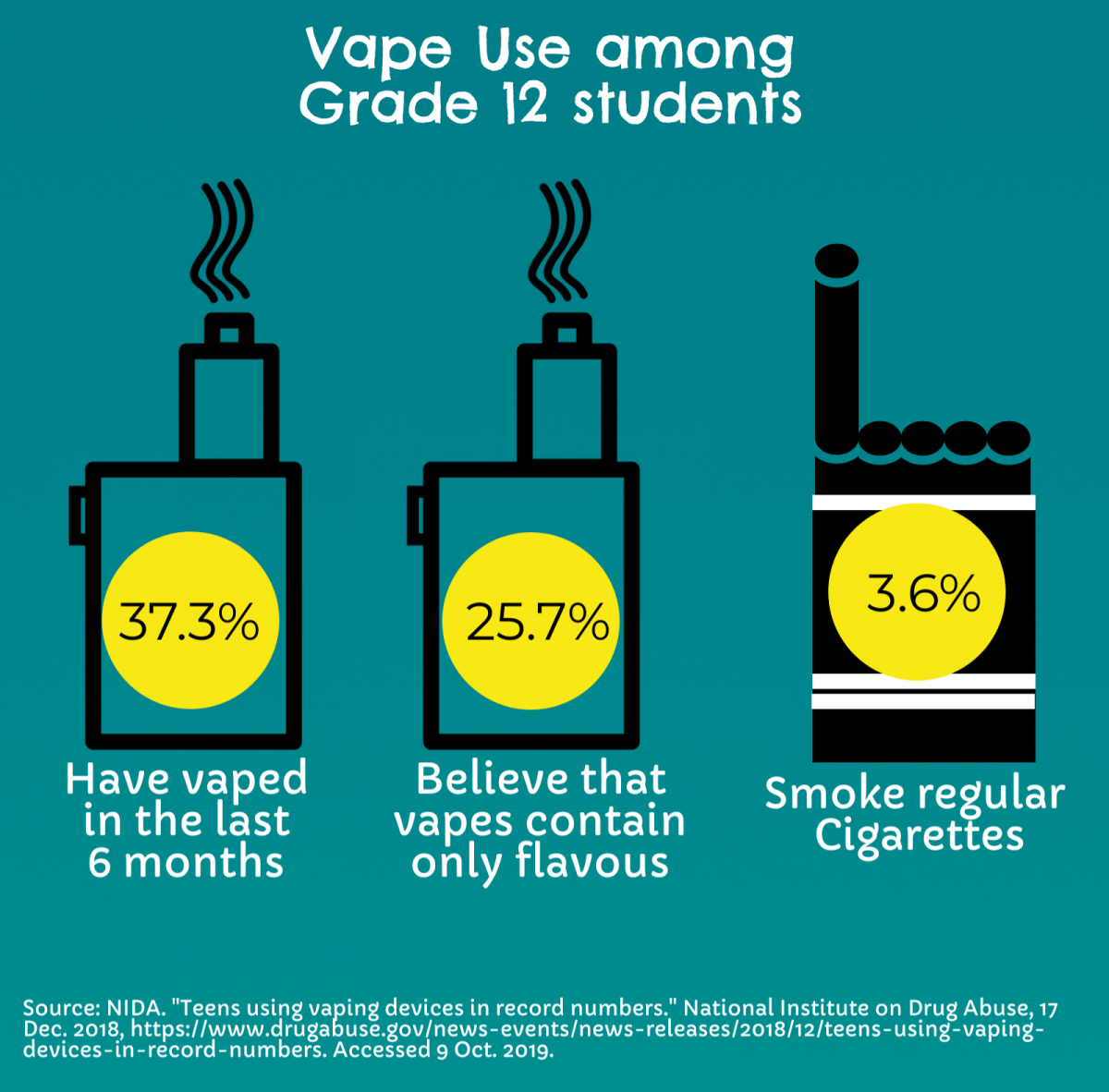E-cigarette use, or vaping as it’s more commonly known, is a popular way of consuming drugs like nicotine. Vape products are also used in the cannabis market, where they are filled with THC or CBD instead of nicotine.

E-cigarettes work by heating a solution called e-juice. The e-juice is usually a mix of vegetable glycerin, and propylene glycol, with added nicotine, or cannabis products for the desired effect. Flavoured e-juice solutions are often available for nicotine vape products.
Vaping has recently caused a wave of concern, linked to documented cases of serious illness or death. According to the CDC, the Center for Disease Control in the United States, the chemicals causing vaping illnesses are unknown. However, the CDC has associated vape products to lung injuries.
A new study shows that the harmful chemicals might be made by the act of mixing the e-juice into the vape. Nicotine vapes are well known for their flavours, which are being blamed for a rise in teen use.
Nearly 38 per cent of grade 12 students said they had vaped in the past six months. Of that group, about 25 per cent thought their vapes were only flavours, with no nicotine. Only 3.6 per cent of grade 12 students said they smoked cigarettes in that same time period.

Despite the known and unknown dangers, some experts still say that vaping is less harmful than regular cigarettes. Michael Joseph Blaha, the director of clinical research at John Hopkins University, said in a statement that “there’s almost no doubt that they expose you to fewer toxic chemicals than traditional cigarettes.”
Vapers have also been known to up the voltage on their e-cigarettes, which gives the user a larger amount of nicotine, or buy vape products with higher amounts of nicotine. Canada has news laws to address this issue. The Tobacco and Vaping Products Act (TVPA) went into effect in May of 2018. The TVPA creates strict rules for how vape products can be sold.
The news of vaping related illness and injury has created some panic. CNN recently posted on Twitter about U.S. President Donald Trump’s call to crackdown on the issue in the United States.
However, there is strong evidence that a ban would force the creation of a black market for vape products. Canadian Students for Sensible Drug Policy (CSSDP) said in a public statement that “legalization promotes safe access to a regulated drug supply and prevents accidental deaths due to contamination.”
NDP Leader Jagmeet Singh addressed vaping at a campaign stop in Brampton in September saying, “Right now, that science is unclear.” He added, “There are some concerns being raised. I think we should be very careful to assess any sort of information that we have, and make the best decision possible to protect citizens.”
Although there are still questions about the long-term effects, there are clear risks to using vape products. However, the rise in vape-related illnesses has sparked the conversation around proper government regulation.


Very well said and documented , Keep up the good research and reporting